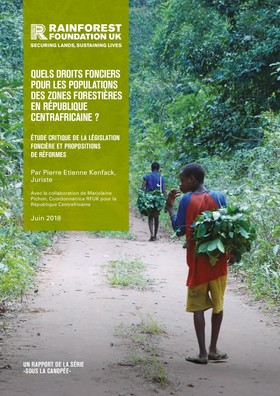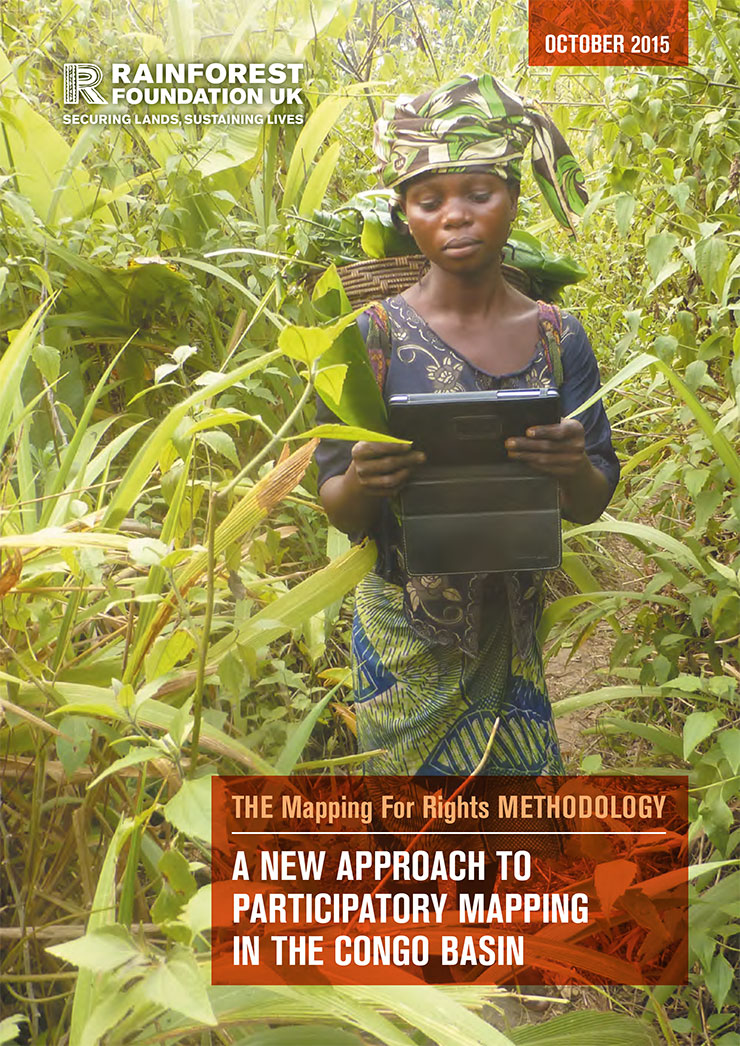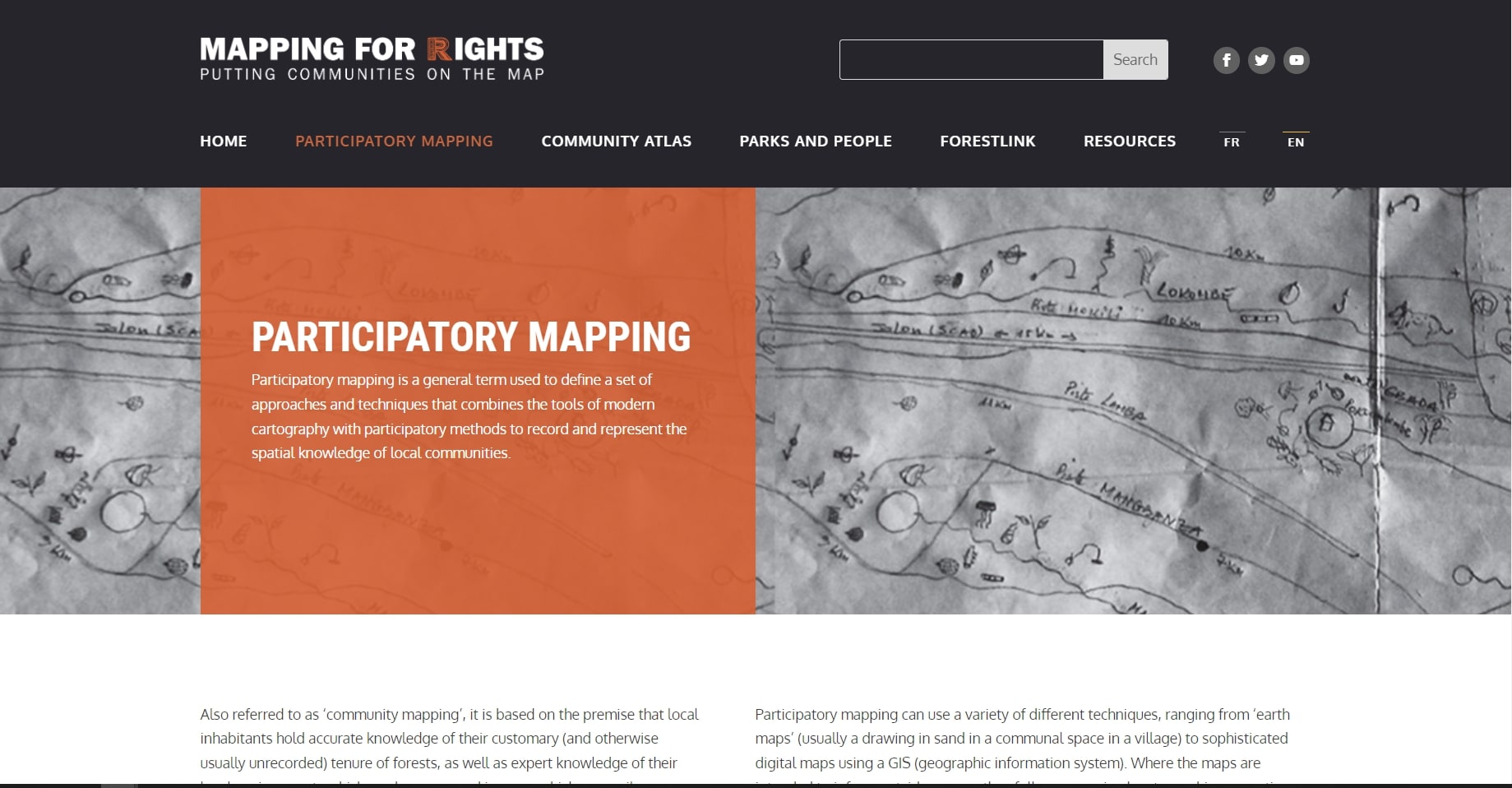Location
The Rainforest Foundation UK (RFUK) is a non-profit NGO working in Africa and South America. It is one of the first international organizations to support the indigenous peoples of the world's rainforests in their efforts to protect their environment and fulfill their rights to land, life and livelihood. The Foundation aims to protect rainforests by securing the land rights of indigenous peoples and other forest-dependent communities. It also campaigns internationally on issues such as industrial logging, climate change, agricultural expansion and nature conservation.
Members:
Resources
Displaying 6 - 10 of 11Quels droits fonciers pour les populations des zones forestières en République centrafricaine ?
Comment s’assurer que le processus de réforme foncière en cours en République centrafricaine (RCA) garantisse une protection effective des droits des communautés forestières sur les terres ? Cette question centrale est envisagée notamment au travers de l’impératif de protection de l’environnement et des écosystèmes dont dépendent ces communautés pour leur subsistance et la préservation de leur mode de vie traditionnel.
L’étude y répond atour de deux pôles. L’analyse critique de la législation foncière centrafricaine (I) et des recommandations (II)
Mapping For Rights' Mapping Methodology: A new approach to participatory mapping
This guide presents the 'Mapping for Rights' approach, which combines participatory mapping techniques, facilitation and hands-on support with the application of relevant and available technology. This combination of tools, guidance and equipment enables communities to identify advocacy goals that their maps could support. The maps are designed to provide a snapshot of the communities’ reality, including information on their history and socio- economic situation and demonstrate occupation and use of specific areas by communities.
Mapping For Rights Initiative
MappingForRights, an initiative of the Rainforest Foundation UK and local partners, enables forest communities themselves to demonstrate their presence in the forest; decision-makers and the private sector to take account of and recognise this presence; and to assist the international community in ensuring that programmes concerned with the Congo Basin’s forests provide equitable benefits for local communities.
Sustainable Landscape Innovation Network
General
Competing land use and resource claims by a wide variety of actors converge at the landscape level. Landscapes are therefore increasingly seen as the spatial scale on which many stakeholders, from global to local level, need to cooperate. Solidaridad's strategy is to develop and/or strengthen policy neutral platforms that bridge the intrinsic tensions between production, farmers’ livelihoods and the environment. The platforms form the basis of a new governance structure that aims to formulate management frameworks for production and natural resource management, based on pilot tested technological solutions. By bringing together regional government and sourcing companies to the negotiating table with those living in the landscape, who were previously not involved, win-win solutions can be found and tested that are supported by local people. Our Landscape Approach sees 5 major steps: Connect stakeholders and create a space for dialogue and planning: we bring together stakeholders in multi-stakeholder partnerships and platforms to enable alignment and cooperation. Build a collective body of landscape knowledge: together with the variety of stakeholders and local and international research institutions. This shared knowledge base is a critical foundation for analysis, decision making, action, monitoring and communication. Develop and test: Identified solutions need to be actionable, affordable and have to make business sense. We work with farmers, entrepreneurs, cooperatives, and downstream supply chain actors and we seek to develop business models which generate a viable income, support investment in improved practices, and contribute to protection and restoration of natural resources. Bridge the gap between policy and practice: There are many ways in which landscape governance can fall short: policies are either not in place, are weak or conflicting, or simply unknown, and institutions often lack the capacity, incentives or means to implement and enforce policies. We raise awareness on existing policy frameworks which affect land use planning and resource management, and we identify the requirements to improve governance in practice. Solidaridad fulfils a key role through linking community level issues to district and national level planning and policy dialogues. Unlock finance for sustainable landscapes: access to finance or capital investment is often required in order to change practices on the ground. Providing access to finance at producer level for replanting and enabling investment in renewable energy at municipal level require different means of financial support.
Oil palm, livestock and cocoa: An integrated landscape management approach.
General
In the South Caribbean Coastal Autonomous Region of Nicaragua, we have convened 49 producers, private companies, civil society organisations, and government agencies in the Paisajes Sostenibles (PaSos) platform to work towards sustainable landscape management, so as to enhance the fragile RACCS ecosystem. The palm oil companies that participated in the PaSos platform jointly identified High Conservation Value Areas (HCVAs) and developed action plans to protect these HCVAs in a cost effective manner. Incentives were developed to support the process towards jurisdictional RSPO certification. By the end of 2020, as a result of the RSPO National Interpretation process, the regional government, as well as the companies involved have shown interest in certifying the entire RACCS under the jurisdictional certification scheme of RSPO. In addition, the national government has shown interest in reviewing and adjusting the Nicaraguan Compulsory Technical Standard of Sustainable Palm Oil (NTON). We also worked with two companies to develop and implement a smallholder-inclusive business model. This model offers a mechanism through which smallholders receive a better price, while it reduces the chances of potential land conflicts between smallholders and companies, and supports smallholders’ livelihood diversification. In addition, we co-initiated the “Livestock Zero Deforestation” platform through which, together with private sector actors and CSOs, we aim to work towards a “deforestation-free label” for dairy and beef, and promote the diversification of livestock farms with cocoa and agroforestry.





